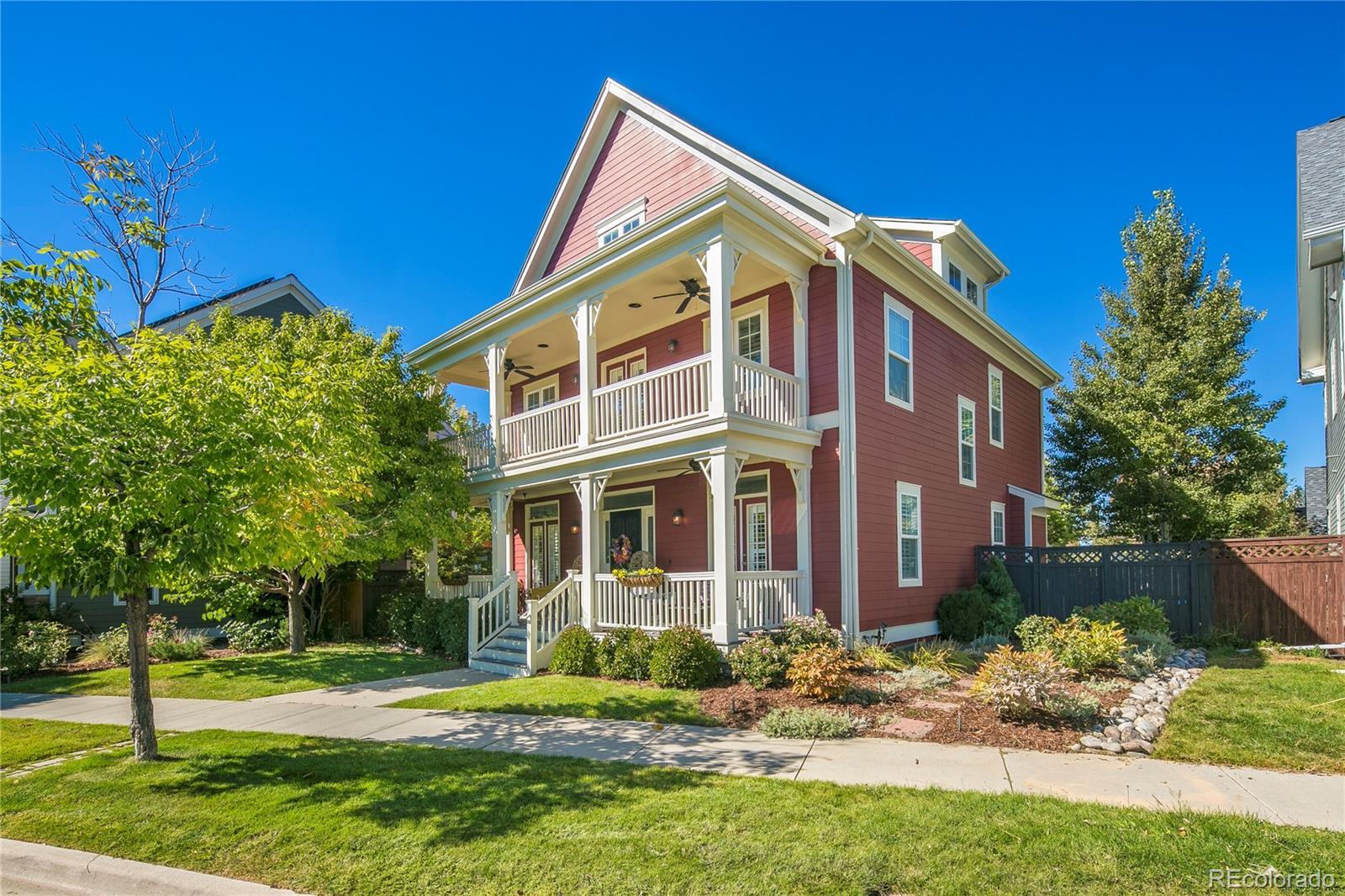
If you’re in the market to buy a home in the Central Park neighborhood, or anywhere in the Denver metro area for that matter, you know how extremely competitive the market is right now. Bidding wars are a constant and buyers are trying to give themselves any edge they can to win.
So with that in mind, we’ve compiled 8 tips you can use that will help you stand out from the crowd!
These tips, and our advice in general, is based on our experience with our clients. Every buyer, their financing situation and their risk tolerance is unique. So please don’t take any of this as legal advice, and always seek legal counsel on your end to make sure you’re taking risks that are acceptable for your situation.
If you’d like help from a team of local neighborhood experts we’re here to help! We can’t guarantee you’ll win every bidding war (you actually don’t want to win every one..there is always a point to walk away!), but we can guarantee that we’re always learning and adjusting to give our clients every advantage we can find. My contact info is at the end of the post if you’d like to connect & get started!
8 Tips to Make Your Offer Stand Out
1 – Offer a Strong Price.
Price isn’t everything on offers, but it is obviously a huge factor to most sellers.
How much should we offer? That is a really tough question these days because almost all the listings are going over the stated asking price. (This will vary, but we’re seeing plenty of homes going 10 – 12% over the asking price).
We suggest you start by focusing on the value of the home you’re buying, not the seller’s asking price. Your agent should be able to pull comparable sales, both sold and under contract, to help you determine the ballpark value range for the home. (Note: In this market agents should be calling other agents to find out what under contact homes are actually selling for because the asking price is typically not even close to the price it’s under contract for. That’s important homework your agent should be doing for you so you have the latest market intel!)
Once you know the value range we typically suggest you make an opening bid a little over the asking price and then add an “escalation clause” (that’s a clause that for example says something like you’ll beat any other offer by $5k up to the max of $950k) that goes up to the maximum price you’ll pay. That maximum price should stay within the value range you have for the home, or at least not stray too far over it. Where exactly should you cap that escalation clause at? That is up to you, but be thoughtful about how far you go over that value range. We oftentimes suggest that you do a thought experiment. You should think about the price and envision losing it at certain price levels to see how you feel about it. If we stopped at $950k and someone else got it for $955k, how would we feel? If it went for $975k, how would we feel? Would we be happy to stopped, or just upset we lost it. Sometimes this can help you get clarity on that right stopping point.
Side notes, this is not a market where you can make a low offer then expect to be negotiated with by the seller. You typically will not be countered on your offer and you likely won’t be considered at all.
2 – Give the Seller their Preferred Timing

When does the seller want to close and when do they want to move out? If you can, structure your offer to perfectly fit their timing needs. If you can close when they want and then let them stay in the home 3 weeks using a Post Closing Occupancy Agreement (“PCOA”), also called a “leaseback”, while their new home is completed this could be the difference that gets you the deal! Typically in this market, rent to the seller of the home is free during that rent back period. Want more info on how all this works? We have you covered, Kailee Ackerman from our team at Focus Real Estate created this Youtube video titled “What is a Leaseback and How Does it Work?” to answer all your questions.
3 – Present the Best Financing Plan Possible
You want your offer to be as financially strong as possible. All cash offers are best, strong fully pre-approved buyers with good down payments are second best and buyers who are just pre-qualified and/or have low down payments are third. (Side note: buyers with home sale contingencies allowing them to back out if their current home doesn’t sell are a very distant fourth. They’re really not even considered at this point.)
So based on the pecking order above the best spot to be is an all cash buyer. Sounds nice, but I don’t have $800k laying around, right? Me neither! But we know a company that can help you make cash offers even when you don’t have the cash! Learn more about that cash buyer program and get a few other financing suggestions in our “3 Financing Tips to Help You Win a Bidding War” post.
4 – Cover a Potential Appraisal Shortage
With offer prices oftentimes coming in way over the asking price sellers are concerned about their property not appraising at the contract price. For buyers to ease their minds many buyers are waiving their right to object to a low appraisal. This is very likely something you will have to consider doing to get your offer accepted. Before you do that, you should talk to your lender and make sure you have a good financial plan in place in case the appraisal does come in low. If the appraisal comes in low, that doesn’t always mean you have to bring the difference to the table in cash. It could be some increase in the cash you need to bring to the table but some of it could be covered by an increased loan amount from the lender. Talk to the lender early, get your game plan in place and make offers with confidence.
5 – Minimize, But Don’t Waive, Your Inspections
In today’s market many buyers are limiting their inspections to convey to the message to sellers that they will not nit-pick them on smaller, cosmetic-type items.
We’re typically seeing these limited inspection clauses in two formats:
One way is buyers write a clause that says the buyer will only ask for repairs or concessions if they find issues on the home related to health, safety or structural items.
The second way we’re seeing is buyers are adding a clause that says they’ll accept the property “as is”. It says they will inspect the property but they will waive their right to ask for any repairs or concessions. (They are basically saying they’ll inspect and make a “go/no-go” decision) In my opinion, this second clause is the strongest option if you’re trying to be as appealing as possible to the seller.
Note, I have seen some buyers fully waive inspections and I think that is a terrible idea and bad advice from their agent. No one expects you to fully waive your inspections and that’s just poor due diligence on a huge investment in my opinion.
6 – Accept the Seller’s Desired Inclusions/Exclusions
Does the seller want to keep the curtains and the basement freezer? Let them have them! I’d structure my offer to let the seller keep whatever they want to keep. For example, if they want to keep the washer and dryer let them do so and just take that into account on your offer price. I think asking for things the seller wants to keep only puts you at a disadvantage compared to the other offers. It may seem small but it this could make a difference.
7 – Make Some of Your Earnest Money Non-Refundable Early in the Process
If there was one item where I see some buyers standing out from the crowd it’s with their Earnest Money. Earnest Money is the money you put up that you stand to lose in the deal if you don’t follow through and close as contractually obligated. Typically, the Colorado standard form provides the buyer with lots of “outs” that allow them to get their Earnest Money back even if they don’t close. Well in this current market buyers are often times waiving those “outs” and making all or some of their Earnest Money non-refundable early in the process.
Some buyers are choosing to make Earnest Money, or a portion of it, non-refundable after inspections. Other buyers are making it non-refundable from the day the Contract is signed.
This is a powerful way to make your offer stand out but it also comes with big risk. Buyers have to realize that they truly will lose their Earnest Money if they don’t perform on the Contract and close. Even if something happens that is not their fault, for example a buyer loses a job and no longer qualifies for the loan, they will very likely lose their Earnest Money. So be careful in this area and again, seek legal counsel and financial counsel to make sure you’re taking a reasonable risk.
8 – Pay All the Related Fees
When you buy a home there are HOA fees, transfer fees, title company fees, etc. In this market the buyers that are winning bidding wars are typically paying for all the fees.
If you address all of these 8 items in your offer and you still lose, you should have confidence that you gave it your all. Sometimes you’re up against an all cash offer or a buyer who is willing to overpay versus market value. If that’s the case, you don’t want to “win” that competition anyway because in the long haul that’s a poor investment.
Focus on what you can control and have peace of mind knowing you gave it your best shot. If you take care of the 8 items listed above you’ll probably end up getting a home fairly quickly, even in a tough market!
If you want assistance from a Central Park based agent, we’re here to help. Here are some recent client reviews that we’ve helped that were able to get the homes they wanted using the techniques we described above.
Lastly, if you’ve read this far and you’re just flat out exhausted by the whole bidding war thing, you may want to consider a new build home. We put together a builder cheat sheet to show you the remaining homes being built in Central Park. You can snag that here.
I hope you’ve found this useful. Please let me know if you have any questions or if I can be of service!






